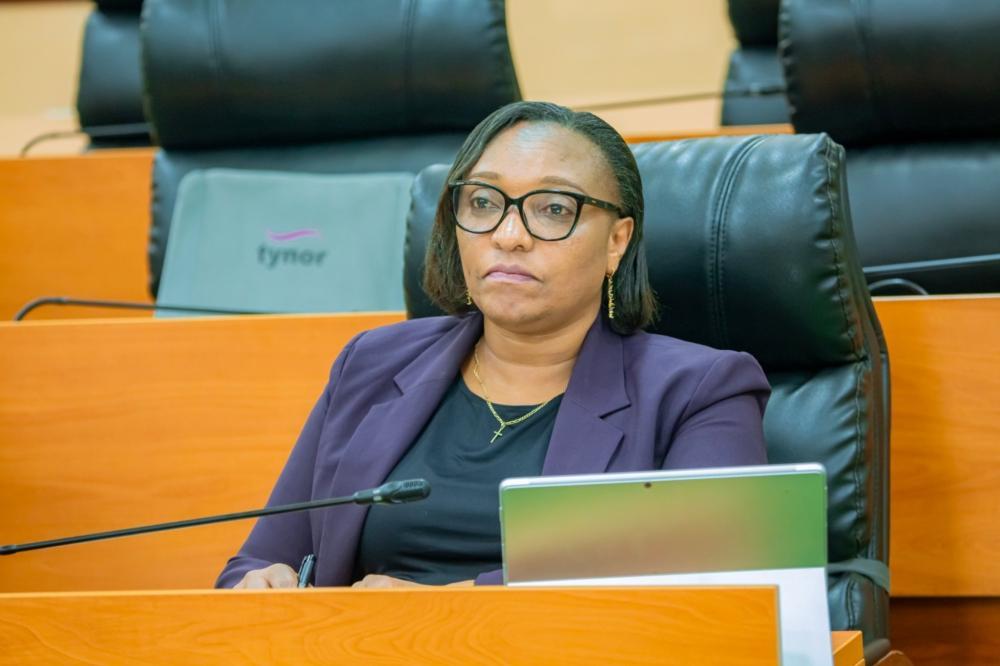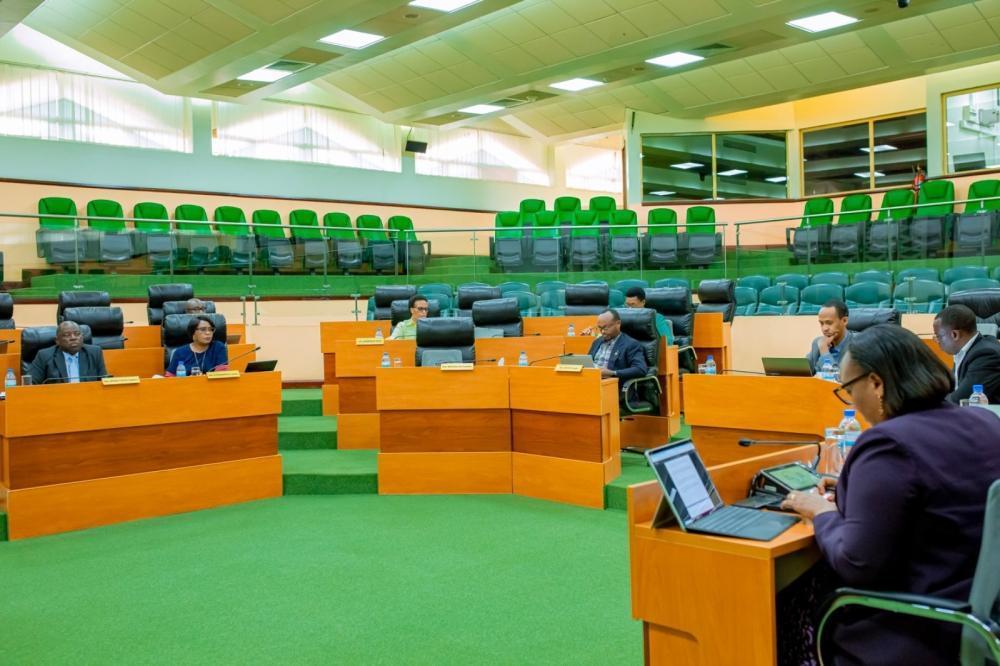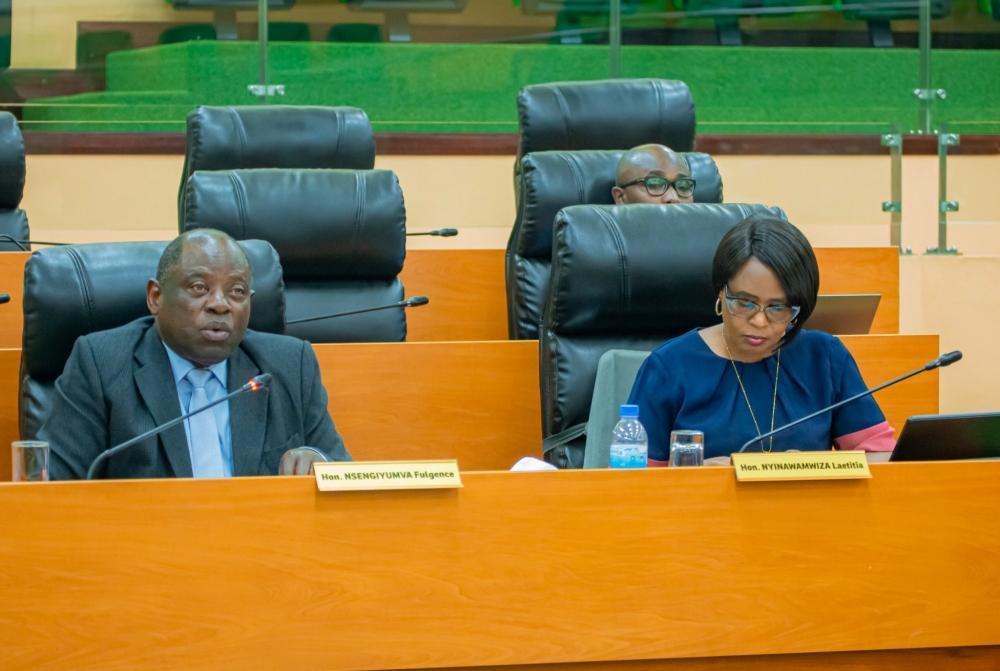Africa-Press – Rwanda. Rwanda has taken a significant step forward in its climate action plan, with 19 projects now ready to participate in the international carbon market as a way of mobilizing climate finance according to the Rwanda Environment Management Authority (REMA).
Rwanda is exploring innovative approaches to mobilise $6.2 billion climate finance, from 2024 to 2030, as part of implementing the newly adopted Climate and Nature Finance Strategy.
This was announced during a session with the Senate Committee on Economic Development and Finance on Tuesday, June 3, where REMA’s Deputy Director General, Faustin Munyazikwiye, outlined the country’s progress and opportunities in leveraging carbon markets for environmental and economic gains.
Minister Uwamariya during a session with the Senate Committee on Economic Development and Finance on Tuesday, June 3,
Munyazikwiye explained that the global carbon market allows developed countries to fund carbon emission reduction projects in developing nations to help them meet their climate targets.
“These 19 projects are categorized mainly in three areas: 12 are focused on energy-efficient stoves, three on agroforestry and reforestation, and four on water purification,” he said.
He said that a person using a cleaner stove can reduce up to 90 per cent of emitted harmful gasses that could be emitted if he/she used a traditional stove of three-stone that uses firewood. These avoided emissions, or carbon credits, can be sold to companies in developed countries seeking to balance their carbon footprint.
“These projects allow Rwanda to tap into carbon financing by monetizing our efforts to reduce emissions,” he added.
During the session, Senator Alexis Mugisha stressed the importance of ensuring that the communities directly involved in these projects also benefit financially.
“There should be a win-win situation in the Green Gicumbi project, for example, with beneficiaries receiving improved stoves or tree seedlings. Similarly, urban residents who choose to use expensive gas instead of charcoal to reduce pollution should be incentivized,” he argued.
Mugisha also proposed that individuals who import hybrid or electric vehicles (EVs), thereby contributing to reduced emissions should receive some form of benefit from the carbon market revenues.
In response, the Minister of Environment Valentine Uwamariya clarified that such users had previously received tax exemptions and that hybrid and EV imports continue to provide a positive outcome for the country, not just for individuals.
“We must adopt a collective mindset that sees the benefit of low-emission technologies as a national gain rather than a personal privilege,” she said.
On how revenues from carbon credit sales will be distributed, Munyazikwiye said communities managing forest projects could expect to receive 30 per cent of the revenue, as 40 per cent will go to the project initiator and the remaining 30 per cent to the government.
He further explained that Rwanda’s carbon projects are divided into two broad categories. There are land-based projects, such as reforestation and forest preservation, which absorb carbon from the atmosphere, and non-land-based projects, like improved cooking stoves, renewable energy installations, waste management, and methane capture, which aim to reduce emissions.
“These credits can be sold in two types of markets, the regulated carbon market, where governments require companies to reduce emissions, and the voluntary carbon market, where businesses or individuals purchase credits as part of their corporate social responsibility,” he said.
The Senate recommended that as Rwanda scales up its engagement in carbon trading, the focus should remain on ensuring these green initiatives also yield tangible benefits for Rwandan citizens.
The 2024 Rwanda practical guide on the carbon market says there are different ways carbon credits are traded including direct trading, where project developers sell carbon credits directly to buyers without involving any intermediaries and use of intermediaries, such as exchanges or brokers.
In this case, brokers or retailers purchase carbon credits from the project developers and then sell them to final buyers, often through a centralized trading platform.
For More News And Analysis About Rwanda Follow Africa-Press








